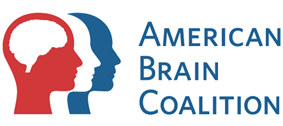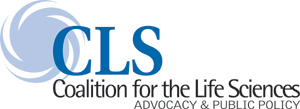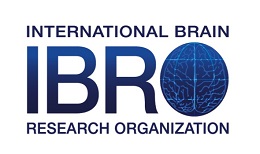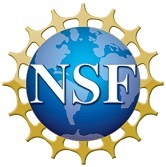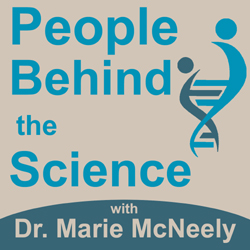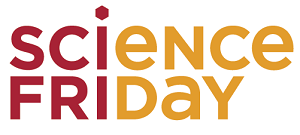Founding Partners
The Gatsby Charitable Foundation
Gatsby is a Trust set up by David Sainsbury to realise his charitable objectives in plant science research, neuroscience research, science and engineering education, economic development in Africa, public policy research and advice, and the arts.
Gatsby aims to be more than a funder, acting as an enabler for projects, designing, developing, overseeing and, in some cases, delivering activities. Gatsby takes a long-term view as they do not think much can be achieved by short, one-off projects. Gatsby is always looking to increase the impact of its limited funds, and is therefore eager to form partnerships with others who share its goals. Gatsby supports both large- and small-scale work, employing different methods and models depending on the different challenges, but is always ultimately looking to deliver long-term, sustainable change.
The Kavli Foundation
The Kavli Foundation, established by Fred Kavli, is dedicated to advancing science for the benefit of humanity, promoting public understanding of scientific research, and supporting scientists and their work. The Foundation's mission is implemented through an international program of research institutes in the fields of astrophysics and theoretical physics, nanoscience, and neuroscience, and through the support of conferences, symposia, endowed professorships, journalism workshops and other activities. The Foundation is also a founding partner of the Kavli Prizes, biennial $1 million prizes that recognize scientists for their seminal advances in three research areas: astrophysics, nanoscience and neuroscience.
The Society for Neuroscience
The Society for Neuroscience (SfN) is the world's largest organization of scientists and physicians devoted to advancing understanding of the brain and nervous system. A membership society, SfN has grown from 500 members in 1969 to nearly 37,000 in 90+ countries today. SfN promotes scientific exchange through its annual meeting, which attracts more than 30,000 attendees from around the globe, and The Journal of Neuroscience, the field's most cited peer-reviewed journal. SfN also supports the neuroscience community through professional development programs and more than 130 chapters worldwide. It is dedicated to sharing the excitement and progress of scientific discovery through public information and outreach, and to advocating policies that advance science and improve health, such as ensuring strong national investments in research and the responsible use of animals in research.
Supporting Partners
Current and recent supporting partners include:
BRAIN Initiative Alliance
Composed of federal and non-federal members and affiliates, the BRAIN Initiative Alliance mission is to coordinate and facilitate communications from its members related to the BRAIN Initiative. The Alliance seeks to inform and engage the public and the scientific community about scientific successes emerging from the BRAIN Initiative, and opportunities for further discovery.
The Dana Foundation
The Dana Foundation is a private philanthropic organization dedicated to advancing understanding about the brain in health and disease through research grants and public outreach. www.dana.org.
The Klingenstein Fund
The Esther A. & Joseph Klingenstein Fund, Inc. supported the development of the Animals In Research section of BrainFacts to expand public awareness about the important role of animal research in scientific and medical progress. The Klingenstein Fund is committed to supporting basic or clinical research that may lead to a better understanding of neurological and psychiatric disorders.
Lundbeck Foundation - The Brain Prize
The Lundbeck Foundation is a leading Danish industrial foundation with a market value of approx. USD 10 billion USD. Each year the Foundation awards The Brain Prize and grants approx. USD 100 million in support of Danish-based, biomedical research of the highest, international quality. More than half of the annual grants are within the Foundation’s focus area: neuroscience. The Brain Prize - a 1 million Euros personal research prize was awarded for the first time in 2011. The Prize is open to researchers around the world and recognizes highly original and influential advances in neuroscience – from basic to clinical.
Stanley Center for Psychiatric Research
The Stanley Center at Broad Institute of MIT and Harvard aims to exploit the most advanced technologies for human genetic analysis to study psychiatric disorders in order to understand disease mechanisms, identify potential biomarkers, and ignite needed progress in therapeutics. However, the increasingly successful discovery of genetic variants associated with disease is only the beginning. The Stanley Center’s goal is not to end with a list of genes, but to contribute to new understandings of pathogenesis, the identification of biomarkers, and above all, new treatments.
The Wellcome Trust
The Wellcome Trust is a global charitable foundation dedicated to achieving extraordinary improvements in human and animal health. It supports the brightest minds in biomedical research and the medical humanities. The Trust's breadth of support includes public engagement, education and the application of research to improve health. It is independent of both political and commercial interests.
Content Partners
American Brain Coalition
The American Brain Coalition (ABC) is a non-profit organization comprised of the United States’ leading professional neurological, psychological, and psychiatric associations and patient organizations. Together, they seek to advance the understanding of the functions of the brain, and to reduce the burden of brain disorders through public advocacy. ABC is a strong and powerful voice for the 50 million people with disabling brain disorders, bringing together organizations that represent concerned and interested patients, families, and professionals. This voice is used to advocate for increased support of research that leads to better treatment; services and support that improves patients’ quality of life; as well as a national commitment towards finding cures for individuals with disabling neurological and psychiatric disorders.
American Chemical Society
With more than 161,000 members, the American Chemical Society (ACS) is the world’s largest scientific society and one of the world’s leading sources of authoritative scientific information. A nonprofit organization, chartered by Congress, ACS is at the forefront of the evolving worldwide chemical enterprise and the premier professional home for chemists, chemical engineers and related professions around the globe.
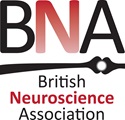
British Neuroscience Association
The British Neuroscience Association (BNA) is the largest UK organisation representing and promoting neuroscience and neuroscientists. Our members' interests cover the whole range of neuroscience, from ion channels to whole animal behaviour to real-life applications in the clinic and beyond. In addition to the scientific journal ‘Brain and Neuroscience Advances’, the BNA publishes a Bulletin magazine for members and hosts a range of events, including a large biennial meeting, the BNA Festival of Neuroscience, and annual Christmas symposium.
Canadian Institutes of Health Research – Institute of Neurosciences, Mental Health and Addiction
The Institute of Neurosciences, Mental Health and Addiction (INMHA) supports research on the functioning and disorders of the brain, the spinal cord, the sensory and motor systems, and the mind. The burden of disease in terms of the social, economic and health care costs associated with these disorders and related illnesses are staggering and there are indications that the number of people affected either directly or indirectly will continue to increase in the years to come.
The Coalition for the Life Sciences
The Coalition for the Life Sciences (CLS) is an alliance of professional organizations working together to foster public policies that advance basic biological research and its applications in medicine and other fields. The issues addressed by the CLS include science education, professional training, and the funding, management, and oversight of scientific work, especially by the federal government. The CLS was formed in 1989 as the Joint Steering Committee for Public Policy.
The Federation of European Neuroscience Societies
The Federation of European Neuroscience Societies (FENS) represents 32 national neuroscience societies and 10 monodisciplinary societies across Europe. The mission of FENS is to advance research and education in neuroscience as well as representing European neuroscience research at the European and global levels including towards the European Commission, IBRO, SfN and other international organizations. FENS is a founding member of the European Brain Council (EBC). The official journal of FENS is the European Journal of Neuroscience (EJN).
Foundation for Biomedical Research
Established in 1981, FBR is the nation’s oldest and largest organization devoted to educating the public about the essential role of biomedical research in the quest for medical advancements, treatments and cures for both humans and animals.
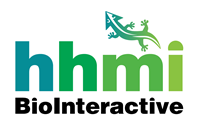
Howard Hughes Medical Institute
HHMI is a science philanthropy whose mission is to advance biomedical research and science education for the benefit of humanity. We empower exceptional scientists and students to pursue fundamental questions about living systems.
International Brain Research Organization
IBRO is a union of neuroscience organizations with the aim to promote and support neuroscience training and collaborative research around the world. More than 80 international, national and regional scientific organizations constitute IBRO's Governing Council, which together with the six IBRO Regional Committees launch the educational programs that will reach young neuroscientists in need of support and assistance. In addition, IBRO has partnerships with like-minded federations of scientific societies to identify priorities and help bridge gaps in knowledge, investment and resources in the field of the brain and related diseases, from development to ageing.

The Kavli Foundation
The Kavli Foundation, established by Fred Kavli, is dedicated to advancing science for the benefit of humanity, promoting public understanding of scientific research, and supporting scientists and their work. The Foundation's mission is implemented through an international program of research institutes in the fields of astrophysics and theoretical physics, nanoscience, and neuroscience, and through the support of conferences, symposia, endowed professorships, journalism workshops and other activities. The Foundation is also a founding partner of the Kavli Prizes, biennial $1 million prizes that recognize scientists for their seminal advances in three research areas: astrophysics, nanoscience and neuroscience.
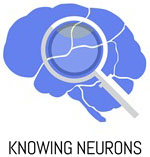
Knowing Neurons
Knowing Neurons is an award-winning neuroscience education and outreach website that was created by young neuroscientists. The global team members at Knowing Neurons explain complicated ideas about the brain and mind clearly and accurately using powerful images, infographics, and animations to enhance written content. With an extensive social media presence, Knowing Neurons has become an important science communication outlet and resource for both students and teachers.
The Lundbeck Foundation - The Brain Prize
The Lundbeck Foundation is a leading Danish industrial foundation with a market value of approx. USD 10 billion USD. Each year the Foundation awards The Brain Prize and grants approx. USD 100 million in support of Danish-based, biomedical research of the highest, international quality. More than half of the annual grants are within the Foundation’s focus area: neuroscience. The Brain Prize - a 1 million Euros personal research prize was awarded for the first time in 2011. The Prize is open to researchers around the world and recognizes highly original and influential advances in neuroscience – from basic to clinical.
National Eye Institute
The National Eye Institute (NEI) was established by Congress in 1968 to protect and prolong the vision of the American people. NEI research leads to sight-saving treatments, reduces visual impairment and blindness, and improves the quality of life for people of all ages. NEI-supported research has advanced our knowledge of how the visual system functions in health and disease.
National Institute on Drug Abuse
NIDA is dedicated to using science to understand drug abuse and addiction. Through both research and the distribution of information, NIDA seeks to educate the public, improve prevention and treatment, and inform policy. NIDA is comprised of five divisions, two of which are dedicated to neuroscience, the Division of Clinical Neuroscience and Behavioral Research (DCNBR) and the Division of Basic Neuroscience and Behavioral Research (DBNBR). These divisions support research conducted to better understand the neuroscience behind drug use and addiction.
National Institute of Mental Health
The mission of NIMH is to transform the understanding and treatment of mental illnesses through basic and clinical research, paving the way for prevention, recovery, and cure. For the Institute to continue fulfilling this vital public health mission, it must foster innovative thinking and ensure that a full array of novel scientific perspectives are used to further discovery in the evolving science of brain, behavior, and experience. In this way, breakthroughs in science can become breakthroughs for all people with mental illnesses.
National Institute of Neurological Disorders and Stroke
The National Institute of Neurological Disorders and Stroke (NINDS) conducts and supports research on brain and nervous system disorders. Created by the U.S. Congress in 1950, NINDS is one of the more than two dozen research institutes and centers that comprise the National Institutes of Health (NIH). The NIH, located in Bethesda, Maryland, is an agency of the Public Health Service within the U.S. Department of Health and Human Services. NINDS has occupied a central position in the world of neuroscience for more than 50 years.
National Science Foundation
With an annual budget of more than $7 billion, the National Science Foundation (NSF) is a U.S. government agency that supports all fields of fundamental science and engineering, as well as research into STEM education. NSF funds about one-fourth of all federally supported fundamental research done by America's colleges and universities, and has helped to keep the nation at the forefront of scientific discoveries for more than six decades.
People Behind the Science
People Behind the Science’s mission is to inspire current and future scientists, share the different paths to a successful career in science, educate the public on what scientists do, and show the human side of science. Its podcast interviews focus on scientists doing fascinating research. The host, Dr. Marie McNeely, is a neuroscience PhD who studies walking and balance deficits in Parkinson’s Disease.
RIKEN Center for Brain Science
RIKEN is Japan's largest research institute covering a broad spectrum of disciplines including physics, chemistry, biology, engineering, and medical sciences. The Center for Brain Science (CBS) at RIKEN conducts basic brain research at multiple scales from individual cells to behaving organisms and social interaction, towards the ultimate goal of benefiting society.
Science Friday
Science Friday is a trusted source for news and entertaining stories about science. It started as a radio show, created in 1991 by host and executive producer Ira Flatow. Since then, it has grown into much more: SciFri produces award-winning digital videos and publishes original web content covering everything from octopus camouflage to cooking on Mars. SciFri is brain fun, for curious people.
The Wellcome Trust
The Wellcome Trust is a global charitable foundation dedicated to achieving extraordinary improvements in human and animal health. It supports the brightest minds in biomedical research and the medical humanities. The Trust's breadth of support includes public engagement, education and the application of research to improve health. It is independent of both political and commercial interests.



